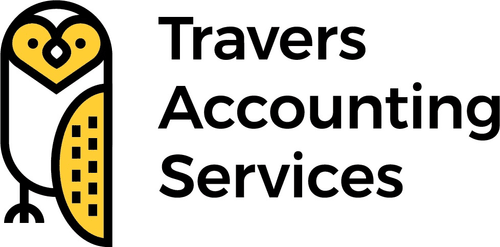5 Ways to Pay Less Income Tax

The clock is ticking..the Pay & File deadline for Income Tax is fast approaching. All sole traders must do the following by 12th November 2019 under the Self Assessment system:
1. File their Income Tax Return for 2018
2. Pay the Income Tax balance due for 2018
3. Pay Preliminary Income Tax for 2019
That represents a double whammy in terms of payments out – paying the balance due for last year AND paying an advance on the current year. You want to make sure that you are not paying more Income Tax than you should.
The best, but not the only, way to do this is to ensure that you are maximising your tax deductible expenses. By doing so you reduce your Taxable Profit, and therefore, pay only the Income Tax that you should.
5 Ways that Sole Traders can minimise their Income Tax Liability
1. Pre-Trading Expenses:
Certain pre-trading expenses are allowable in calculating trading income. A deduction is available in respect of pre-trading expenses which:
• are incurred in the three years prior to commencement of the trade, AND
• would have been allowable if they had been incurred after the date of commencement of the trade.
• Examples include: Accountancy fees, Advertising costs, Costs of feasibility studies, Costs of preparing business plans, Rent paid for the premises from which the trade operates.
2. Home Office Expenses:
Advances in technology have facilitated a huge increase in the numbers of business owners working exclusively from home. But, if you are one of these business owners are you sure that you are recording all your legitimate business expenses?
• Rent – If you rent your home you are allowed to claim a REASONABLE amount as a business expense. The two ways of calculating the amount is 1) Based on square footage (as a percentage of the overall square footage of your home) 2) Based on the Difference in Rent (if you rent a 4 bedroom property specifically to use 1 room as an office exclusively, but only need 3 bedrooms for personal use).
• WARNING: IF YOU OWN YOUR HOME IT IS ADVISABLE NOT TO CLAIM A PORTION OF YOUR MORTGAGE COST AS A BUSINESS EXPENSE DUE TO CAPITAL GAINS TAX IMPLICATIONS SHOULD YOU SELL YOUR HOME IN THE FUTURE.
• Light & Heat – You are entitled to claim a proportion of your domestic utilities expenses, but only for additional costs that you incur. The amount claimed must be reasonable and should only reflect the time that you actually work at home.
• Telephone & Broadband – You are entitled to claim for all business telephone calls, either made from a landline or from a mobile telephone. You are also entitled to claim a reasonable portion of the cost of broadband.
3. Loan Interest:
• Many business owners borrow money to fund their business. Loans that have been taken out in the business name mean the interest can be taken as a tax deduction. It is only the interest charged and any administrative or penalty charges that can be claimed; the repayments you make do not qualify.
4. Car & Travel Expenses:
• If your business involves travel a portion of your vehicle expenses including fuel, insurance, repairs, breakdown cover and maintenance costs can be taken as a tax deduction. If your vehicle is for both business and personal purposes, only the portion in relation to business is allowed as a deduction.
• Other transport costs e.g. bus, train, taxi, airline fares, incurred in the course of business are also allowed as a tax deduction.
• Hotel accommodation incurred on a business trip – where there is no personal motive in the trip – is an allowable deduction.
• Where a hotel bill for a business trip includes reasonable amounts for both overnight accommodation and food then these two amounts should not be disaggregated. If the accommodation is allowable then so too is the food.
5. Health Expenses:
• Tax Relief is available to ALL taxpayers (Employees & Self-Employed) for the cost of Health Expenses. These expenses can be for yourself, a family member or any individual, as long as you paid for them. Tax relief is given at the standard rate of tax, which is currently 20%.
• There is a limit to how far back you can claim tax refunds – the current limit is 4 years. Therefore claims for 2015 must be made by 31st December 2019.
• Examples of Health Expenses that qualify for Tax Relief include the following:
• Doctors & Consultants Fees, Drugs & Medicines Supplied by Pharmacist & Prescribed by your Doctor, Hospital Stays, IVF, Physiotherapy, Non-Routine Dental Care Costs, Special Diets Expenses for Coeliacs & Diabetics, Eye Laser Treatment Costs, Educational Psychologist Assessment Costs, Speech & Language Therapy for Children.
It is in the interests of all business owners to have a robust system for recording business expenses. In the absence of another system, I recommend using the Revenue’s Receipt Tracker service which allows you to record and keep track of your receipts and expenses. Don’t be a fool…minimise your tax liability and keep more cash in your business!
